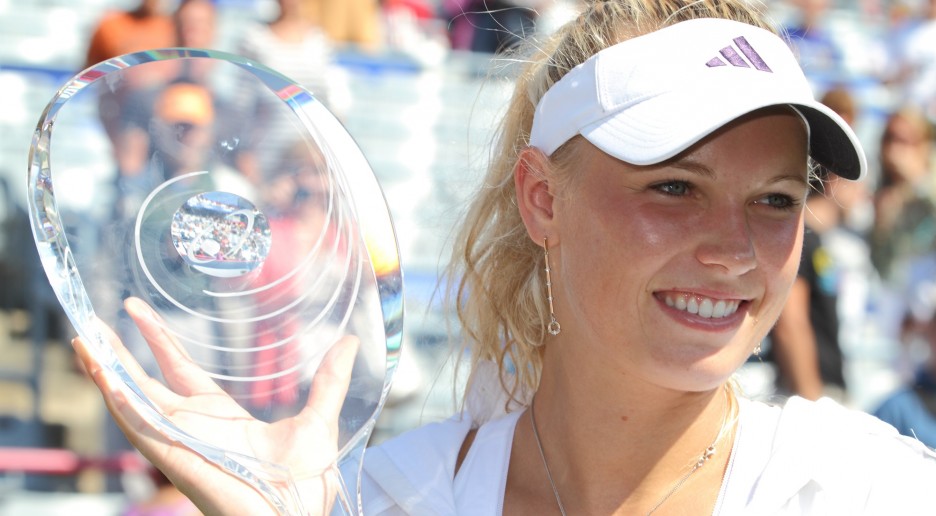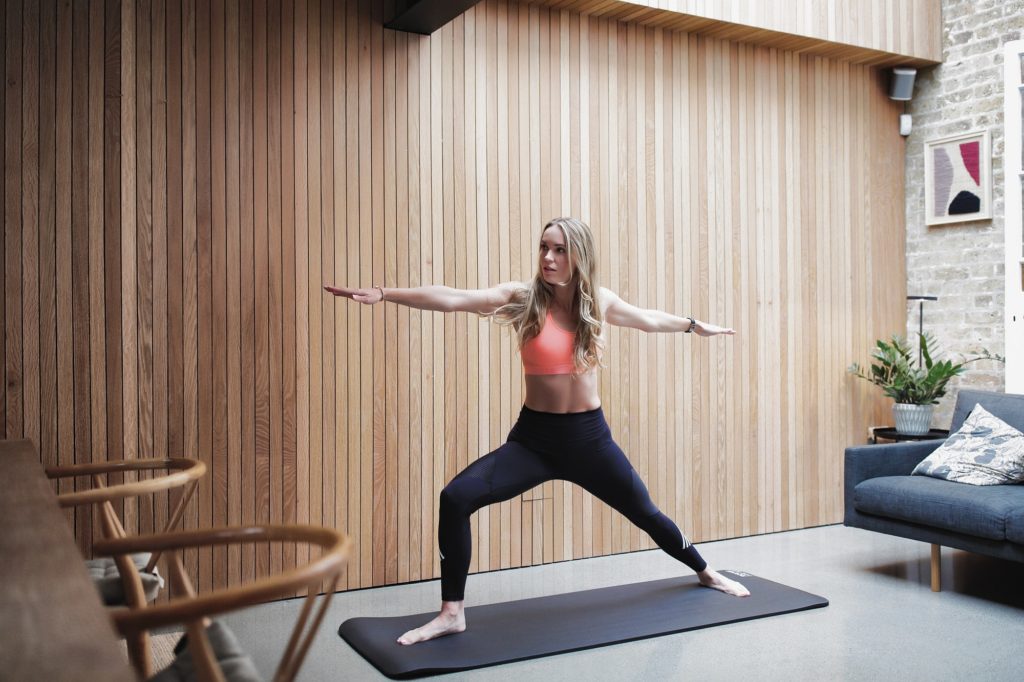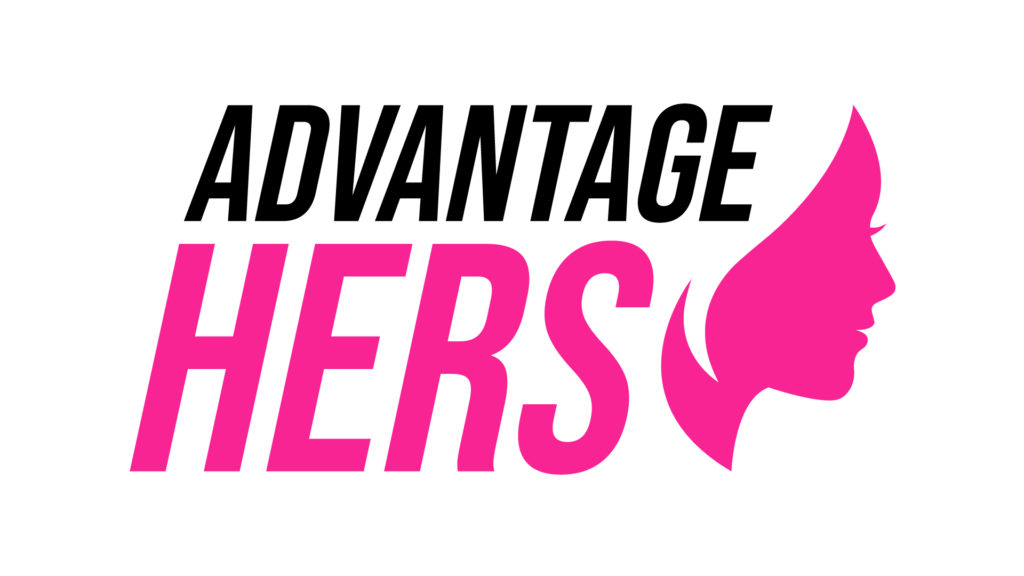
Ask Caroline Wozniacki about Canada and her face instantly lights up. A repeat customer at Rogers Cup (now National Bank Open presented by Rogers) throughout her career, the Danish champion had some great times in Canada and Montréal in particular, where she won the 2010 title (6-3, 6-2 against Vera Zvonareva) and competed in the semis in 2012 and quarters in 2014. In 2017, she battled in the final in Toronto
“’I love Canada, and I love both tournaments, Montréal and Toronto,” Caroline affirms. “Montréal is where I had my best results. I just love the fans, the people, the atmosphere. There are a lot of Polish people living in Canada, as well. My dad is Polish, and we would go to all these Polish restaurants and that was fun. Obviously, Montréal and Toronto are very different cities. Montréal has a more European feel, and I really enjoyed that. I thought that was great. Toronto has more of a New York feel. Honestly, I loved both and I’m just happy I got to play there so many times. I don’t remember when my first National Bank Open was. I must have been 15 years old. I had many, many great years in Canada, and I hope I can go back to the tournament.”
Her 2010 run remains the highlight, especially considering the unusual circumstances that transpired that year in Montréal. Because of a rain delay, she had to play in the semifinal and final—the first of her young career—on the same day.

A HEALTH CHALLENGE BEHIND THE SCENES
Despite her many happy moments here, Canada is also where Caroline Wozniacki started feeling the more acute symptoms of rheumatoid arthritis (RA), a chronic inflammatory autoimmune disorder. A three-set match at the 2018 tournament wreaked havoc on her body.
“I woke up in extreme pain. It was so intense that I couldn’t lift my arms, not even to brush my teeth. I couldn’t get out of bed. I was exhausted. I’d sleep 14 hours every night, try to practice for an hour and half and then sleep another 3 or 4 hours during the day. I was just sleeping all the time because my body couldn’t bear the fatigue or the pain. It was the first real sign that something was wrong,” she recounts.
For a long time, Caroline went from physician to physician to understand what was happening to her but couldn’t get a clear diagnosis.
“I can only speak from my own experience, but I just didn’t feel respected from the start,” she confesses. “I’m a world-class athlete, I’m telling you something isn’t right and you’re not listening to me. I felt they weren’t listening and they were telling me I was in bad shape or pregnant or I had a mental problem. They weren’t taking me seriously at all. I ran the New York City marathon, I know I’m in great shape! I’m known for being one of the players in the best shape out there. That’s how I won most of my matches.”

After several failed attempts, she finally found someone who believed her and pinpointed the problem.
Rheumatoid arthritis isn’t regular arthritis. It’s a chronic illness that affects the entire body by attacking the joints and causing a lot of inflammation, fatigue and tremendous suffering. It can happen to anyone, young or old, in shape or not, and often leads to devasting mental and physical consequences for sufferers.
“With chronic inflammatory disease and RA, you can get a big flare up, which is what I had when I was at my worst, and then you start feeling a little bit better for no reason and then you start feeling worse again,” says Caroline. “It’s a big problem in life in general. People can’t get out of bed, they can’t go do normal things, like lift their kids up or play with their kids or do anything. Mentally, that becomes very difficult. You see a lot of mental health problems like depression because you’re used to being one person and then you can’t do those things. That’s why a diagnosis is so important and finding the right doctor and the right treatment plan is so important so you can get better.”
ADVANTAGE HERS TO PROVIDE SUPPORT AND INFORMATION TO WOMEN
As the inspiration behind the Advantage Hers campaign, Caroline is walking the talk. In collaboration with global pharmaceutical company UCB, she is now working to ensure no woman affected by RA ever has to sacrifice her dreams.
“The initiative really comes from the bottom of my heart and means so much to me,” she says. “I tell my story, how I felt and how I was diagnosed on the Advantage Hers website. The aim is to raise women’s awareness of RA and other inflammatory disorders and provide them with the right information. Before, when I searched for information online, I’d read that my life would be shorter, that I couldn’t have a family. None of that is true and that’s the essence of this campaign: give people the information they need so they can get the right treatment and live a better life.”

The campaign is especially focused on awareness building, and the goal is to reach as many people as possible so RA becomes widely known and those living with RA can share their experiences and not suffer in silence. Advantage Hers is specifically aimed at women, who often face challenges that are different from those experienced by men.
Caroline explains: “You know, men get diagnosed quicker in general, and this is why I wanted to do the Advantage Hers campaign. It’s for women, to empower them to speak up. We know our bodies so well, we know when something isn’t right. A lot of times, doctors don’t take you seriously and women don’t stand up for themselves and just let it go.”
For more information on chronic inflammatory autoimmune disorders, the Advantage Hers campaign, Caroline’s journey or the support available to women living with RA, click here.
You can also join the Advantage Hers campaign on Caroline’s social media accounts and share your stories using #AdvantageHers.


